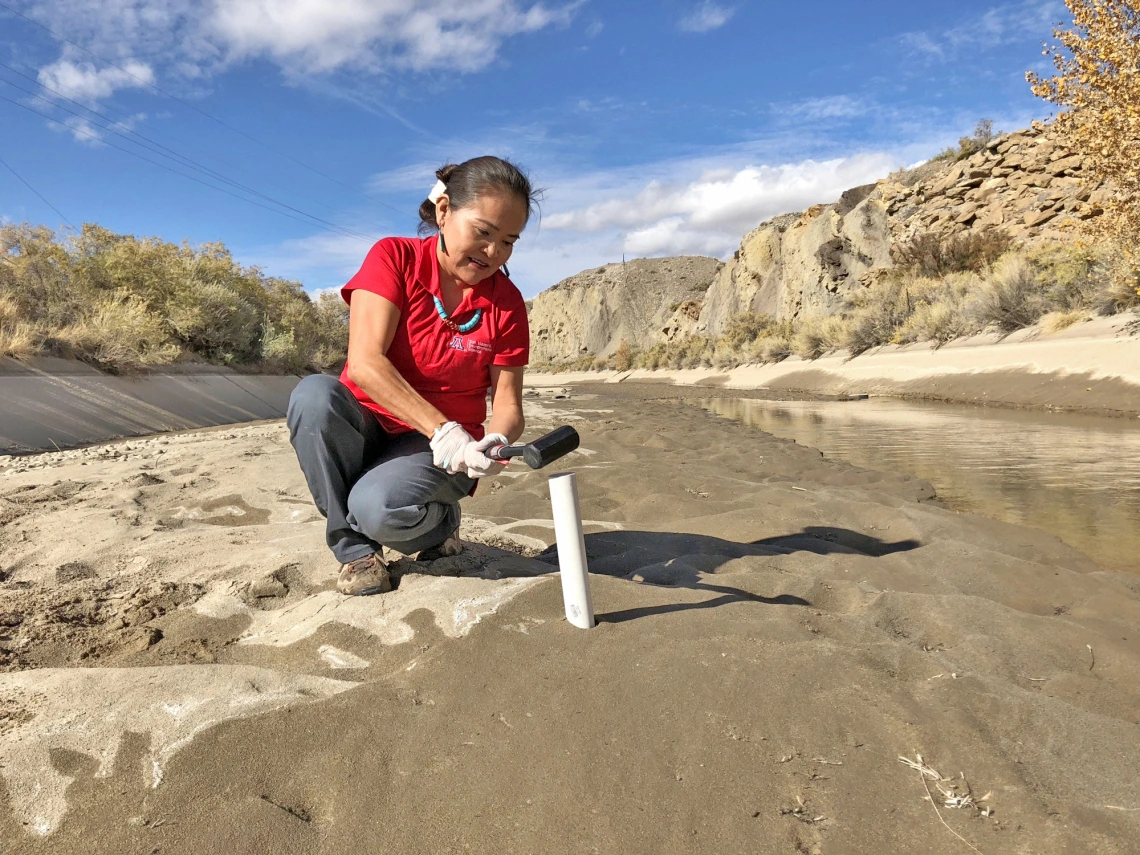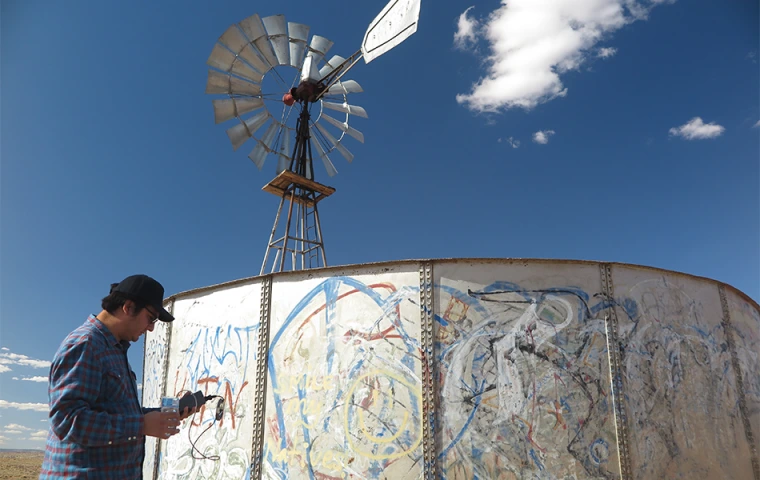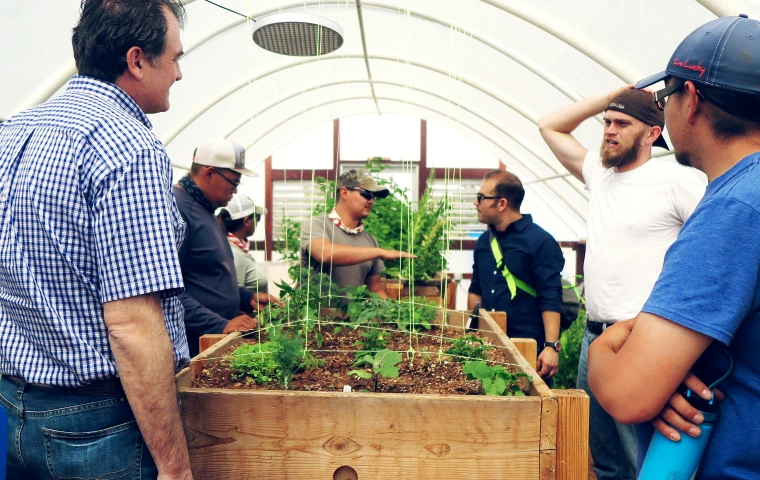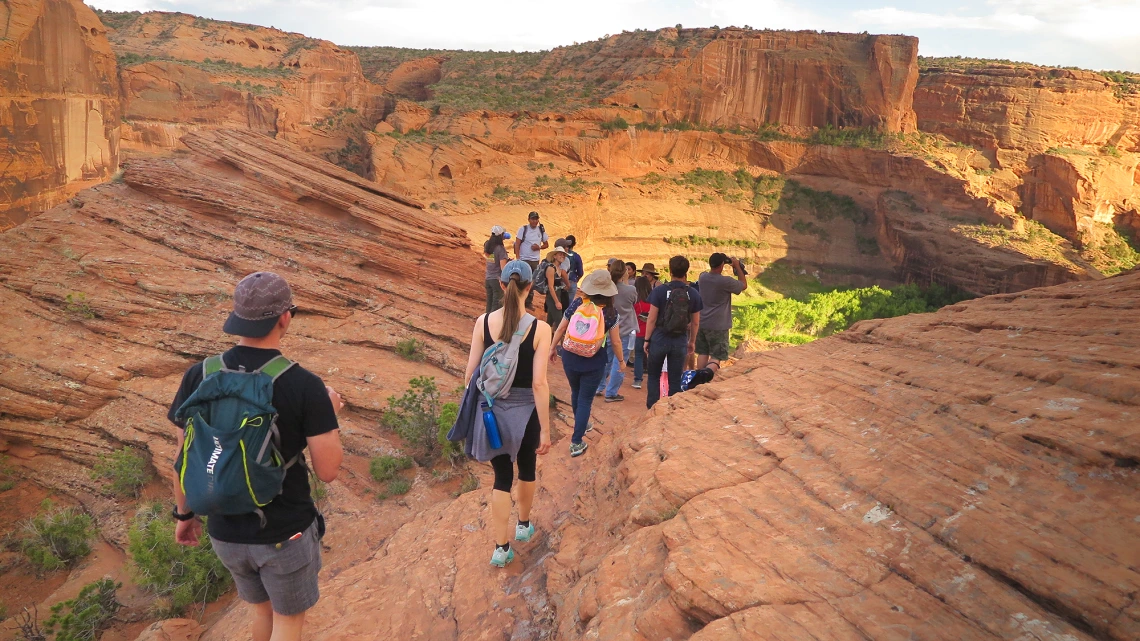What’s Next in Partnering with Tribal Leaders
Karletta Chief shares her perspective

Karletta Chief collects a sediment core sample from a river to measure for contaminants.
What role can tribal communities play in the university’s environmental research?
Tribal communities should be involved in driving the research questions, co-designing the research approach and participating in the collection of data. They should be co-authors of the research that comes out of it, so that they are fully benefitting. It can no longer be the old practice of “helicopter research” where university researchers come in, do work without any tribal approvals, and then leave, never to return to give that information back. We need to engage with tribal communities in ways that build trust, and that’s what we’re doing today through partnerships like the Indigenous Resilience Center.
How are water issues culturally unique for the Navajo Nation?
There is a deep connection that Native Americans in general have with water and the natural environment. It’s important to their spirituality, to their religion, to their livelihoods. I think that’s often lost in the conversation about water; it’s not only about the utilitarian uses but also the spiritual uses of water.

Trainee Christopher Yazzie (Diné) tests water on Navajo Nation. | Indige-FEWSS trainees visit a hoop house at Diné College on Navajo Nation.

Trainee Christopher Yazzie (Diné) tests water on Navajo Nation. | Indige-FEWSS trainees visit a hoop house at Diné College on Navajo Nation.
How does the Nation approach sustainability?
I see the Navajo Nation as already sustainably using water because water is not easily accessible. People there are already conserving water, and their use is very minimal. The challenges relate to access to clean water, so what we’re working on right now is off-grid, solar-powered solutions.
What is innovative about your work with the Nation?
Because Navajo Nation is so big, central infrastructure will never be possible; the people don’t live in clustered housing areas like cities, and they likely never will because of their culture, livelihoods and their connection to their specific ancestral land. Our team is working toward innovative off-grid solutions and [is] piloting these units in the communities and asking for their input.

Indige-FEWSS team hikes to the bottom of Canyon de Chelly on Navajo Nation.
What is the role of the next generation in creating solutions?
Through my work, I’ve realized how big the desire is for Native students to work with their own communities. But both Native and non-Native students need training with things like how to work with tribal leaders, how to get research approved and how to navigate cultural protocols.
How do you train students to work with tribes?
During the Gold King Mine spill research project, I ended up doing a lot of training I didn’t expect, pointing students to resources about tribal consultation and decolonizing methodologies. Building off this project, we created a training program, [Indigenous Food, Energy & Water Security and Sovereignty, or] Indige-FEWSS, that would train students across disciplines on intercultural awareness and provide transdisciplinary experiences to address challenges related to food, energy and water. Today, we are developing ways to institutionalize that training. There’s a lot of support available at UArizona for students who want to work with Indigenous communities.
The students I meet every day motivate me with how committed they are to working with communities. I want to be able to support their passions and goals and show them that they can also have a connection with the communities they do research in.
